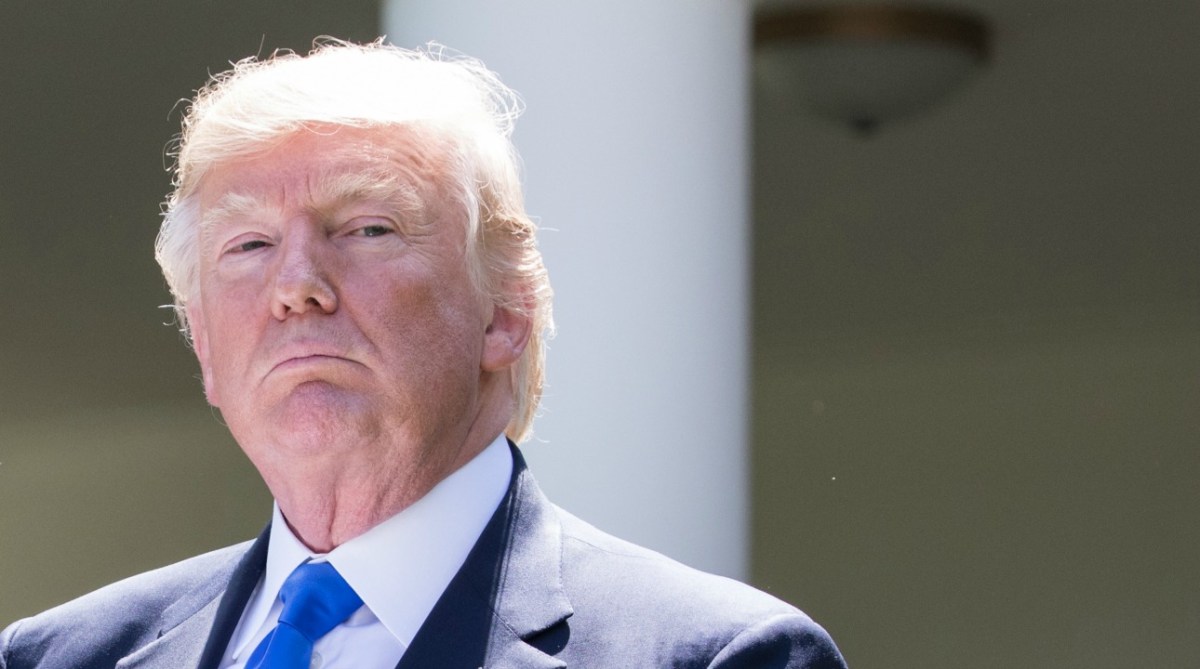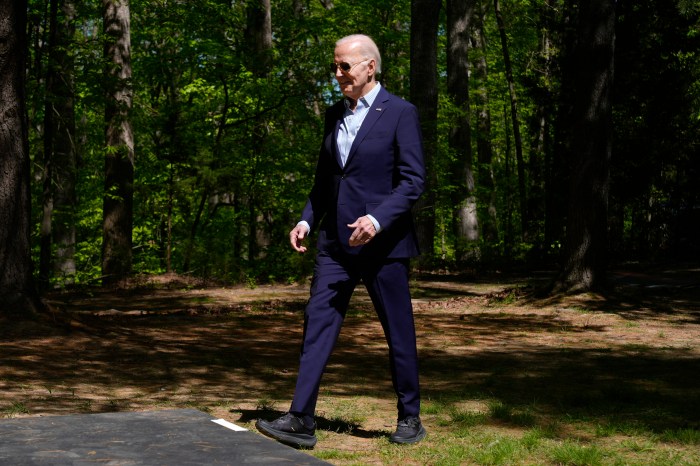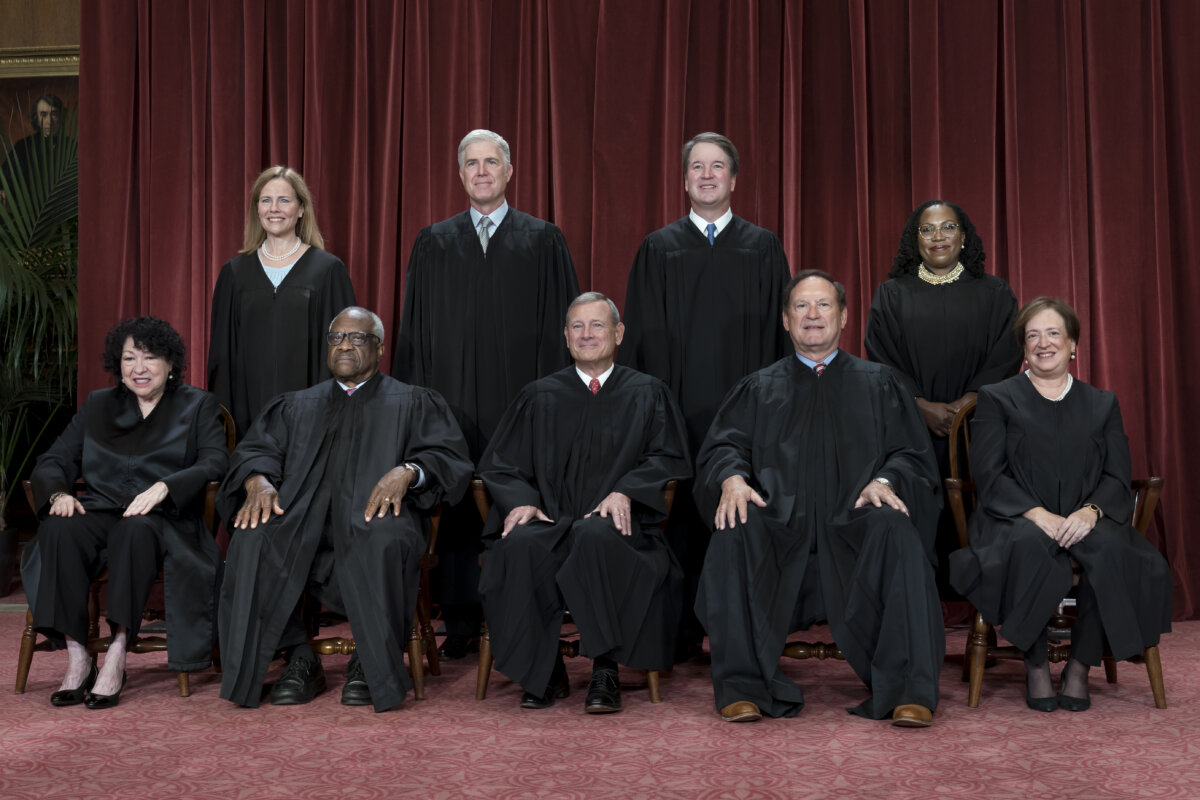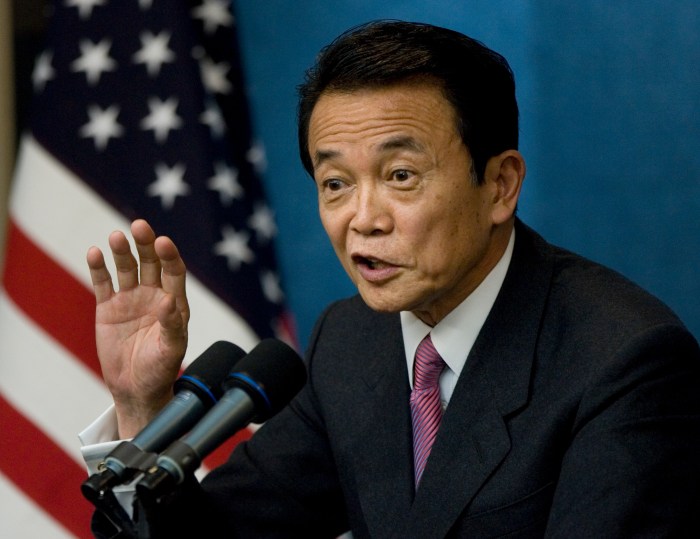President Trump’s 2019 budget request would prevent food-stamp recipients from using the program to purchase fresh fruits and vegetables, requiring them to receive a box of processed foods instead.
White House Office of Management & Budget head Mick Mulvaney called the proposal a “Blue Apron-type program,” referencing the boxed-meal-kit company that lost $130 million in the second half of 2017.
Under the current Supplemental Nutrition Assistance Program (SNAP), low-income recipients can spend their benefits on certain grocery items, including almost anything in the fresh produce and meat sections. Mulvaney’s proposal would replace that with “America’s Harvest Box,” a mailed package of “100 percent U.S. grown and produced food,” with an emphasis on preserved items such as shelf-stable milk, peanut butter, canned meats and fruit and cereal, Politico reports.
The U.S. Department of Agriculture says the program would save $129 billion over 10 years. But that math has been called into question, largely because the USDA admits it hasn’t estimated the not-inconsiderable shipping costs. USDA spokesman Tim Murtaugh said that states would “have flexibility” in how they would distribute the food to SNAP recipients. “The projected savings does not include shipping door-to-door for all recipients,” Murtaugh said.
“The proposal was so out of left field that some anti-hunger advocates initially thought it was a joke,” reports Politico, adding that Kevin Concannon, who oversaw SNAP during the Obama administration, was “aghast” when he saw the proposal. “Holy mackerel,” said Concannon, who compared it to an era when poor people had to line up and wait for food and welfare benefits to be distributed. “I don’t know where this came from, but I suspect that the folks when they were drawing it up were also watching silent movies.” The nonprofit Food Research and Action Center called the box proposal “a Rube-Goldberg designed system” that would be “costly, inefficient, stigmatizing, and prone to failure.”
The Food Marketing Institute — which represents major grocery chains including Walmart and Kroger — joined the firing squad, saying that government-packed food boxes would be expensive and unravel an efficient program that had been refined over decades. Jennifer Hatcher, the FMI’s chief public policy officer, said that grocers, the USDA and Congress had worked for years to “achieve a national system, utilizing existing commercial infrastructure and technology to achieve the greatest efficiency, availability and lowest cost.”
“As we understand the proposal in the president’s budget to create a USDA commodity foods box of staples, each of these achievements would be lost,” said Hatcher. “Perhaps this proposal would save money in one account, but based on our decades of experience in the program, it would increase costs in other areas that would negate any savings.”



















